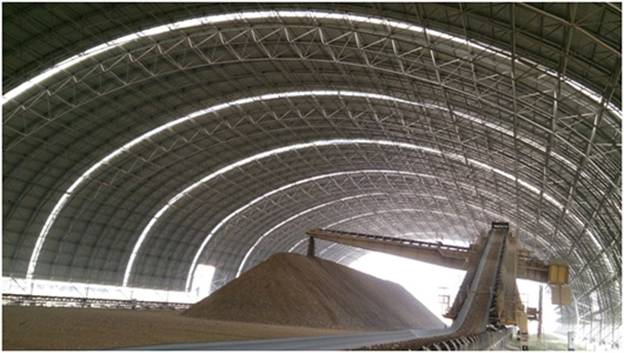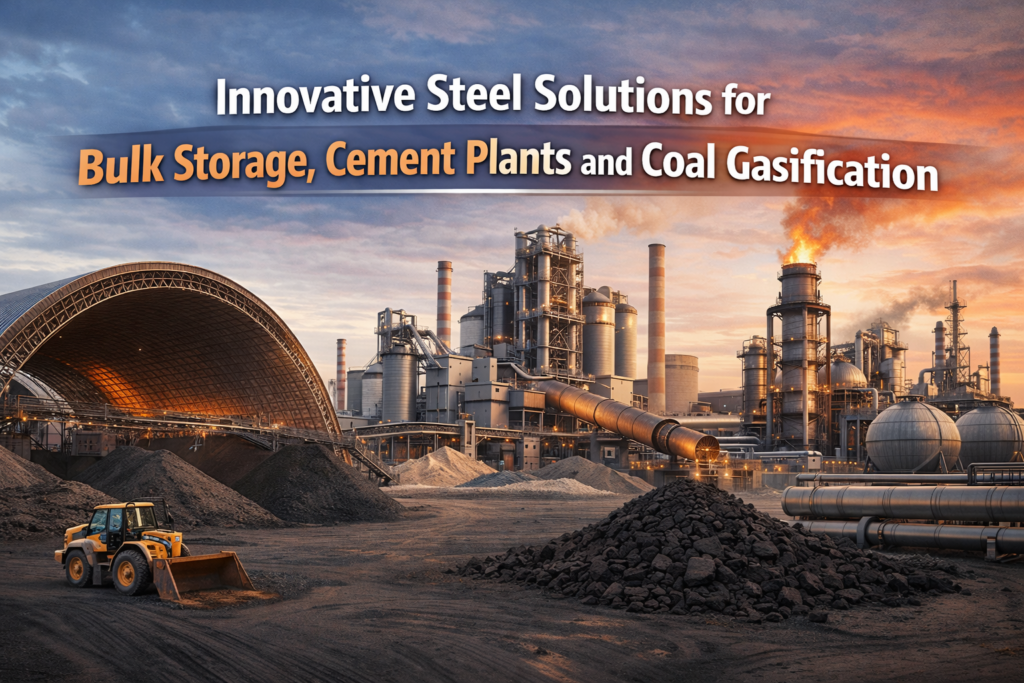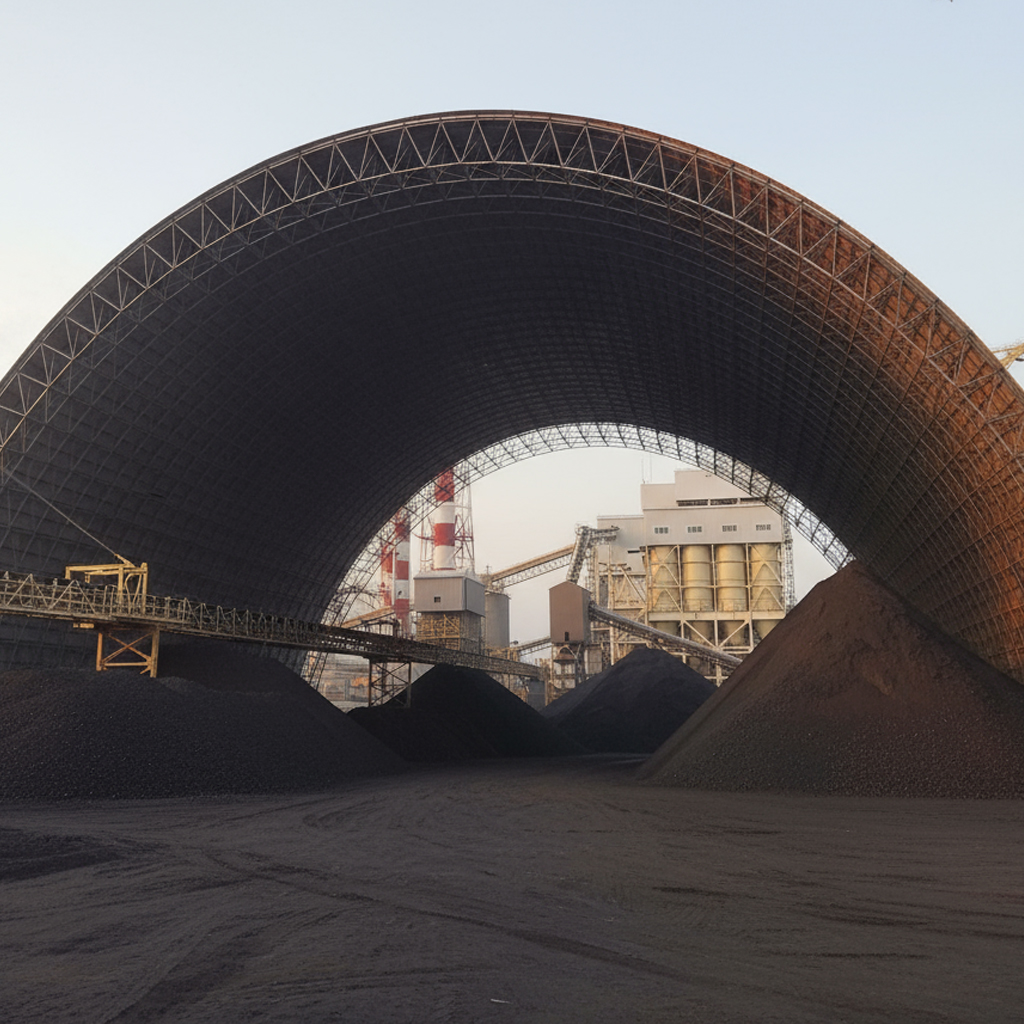The storage of (Cement, Clinker, Slag, Limestone, Additives, Gypsum and other industrial materials) in large quantities is referred as bulk storage. Handling of bulk storage is process of movement, storage, control and protection of industrial material throughout the process of manufacturing, distribution, consumption and disposal. Followings are the major issues to be faced in storage, handling and transport of bulk solids powders and other dry material:
- Emission from Storage:: The storage, and transport of Industrial Material like limestone storage, gypsum storage, cement storage for long duration produces emissions of volatile organic compounds (VOCs), nitrogen oxides (NO), carbon monoxide (CO) and other toxic air pollutants. These toxic emission are not only threat to lives of labor, but also harmful for our ecosystem.
- Moisture Problem: Increase in moisture content in bulk storage sheds not only affects the intrinsic properties of material but also gives rise to its reactive tendency with other chemicals.
- Flow Problem: The most common problem in operating bulk storage is flow blockage. It largely depends upon bulk density, particle size and moisture content in the material.
- Particle Segregation Problem: Existence of moisture content in material for a long time causeserratic feed & variation in particle size (segregation) which leads to increased energy consumption and reduced mill performance.
- Caking Problem : Fully or partial solidification of bulk solids like (cement, limestone) by virtue of adsorption, crystallization, adsorption after a long storage time. Heat and exposure to dry air will exacerbate caking. Persistence of such problem increases the manpower and time needed for disaggregation of unwanted aggregated material.
- Chemical Oxidation : Some of the industrial material are oxidative in nature and their chemical oxidation rises with the rise in temperature, which causes loss in the intrinsic properties of material.




